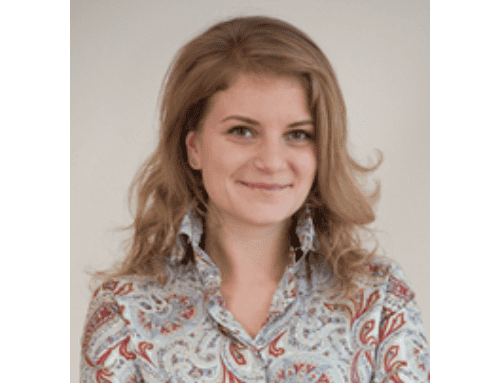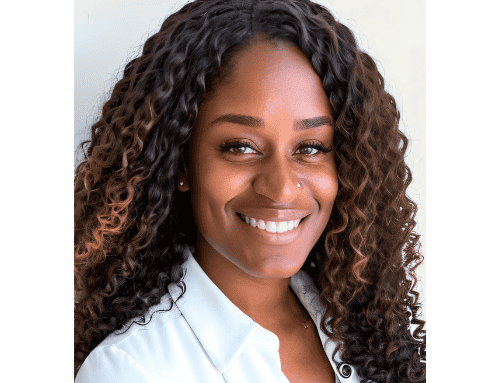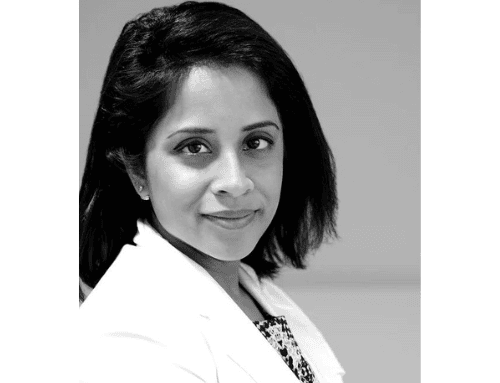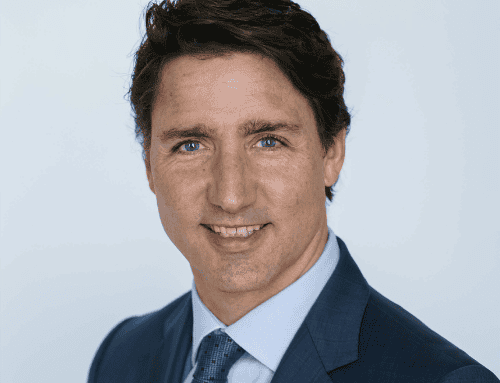I’ve heard people say, “climate disaster knows no bounds”. There’s a sense in which that’s true. But impacts of climate change affect different people in Canada and around the world differently, depending on who they are.
Women, girls, and gender-diverse people often experience harsher impacts of climate change, especially if they are marginalized due to racism, poverty, and other factors. They’re also an important part of effective climate solutions. Gender equality itself is a climate crisis solution.
Guest Katie Harper is Senior Advisor at Project Neutral. She designs and delivers climate education and activation programs including Talk Climate to Me, an award-winning course for women and allies. Katie has worked on climate engagement in non-profit and corporate sectors for 15 years and holds a Masters in freshwater ecology from McGill University. She delights in stopping to talk to anyone looking at a map on a street corner, and that same desire to make people feel welcome animates her work talking about climate change, and helping people see themselves in a vibrant, healthy, climate-safe future. She lives in Treaty 13 Territory with her husband and two boys, and enjoys mentoring young people in nature connection at the Pine Project outdoor school.
Transcript
00:00:01 Katie
Climate is a threat multiplier, so any place there are existing vulnerabilities, it can just make it worse.
00:00:07 Andrea
What are the gendered implications of climate change and disaster? I’m Andrea Gunraj at the Canadian Women’s Foundation.
Welcome to Alright, Now What? a podcast from the Canadian Women’s Foundation. We put an intersectional feminist lens on stories that make you wonder, “why is this still happening?” We explore systemic routes and strategies for change that will move us closer to the goal of gender justice.
The work of the Canadian Women’s Foundation and our partners takes place on traditional First Nations, Métis and Inuit territories. We are grateful for the opportunity to meet and work on this land. However, we recognize that land acknowledgements are not enough. We need to pursue truth, reconciliation, decolonization, and allyship in an ongoing effort to make right with all our relations.
00:01:01 Andrea
I’ve heard people say climate disaster knows no bounds and it discriminates against no one. There’s a sense in which that’s true, but impacts of climate change affect different people in Canada and around the world differently depending on who they are.
Women, girls and gender diverse people often experience harsher impacts of climate change, especially if they’re marginalized due to racism, poverty, and other factors. They’re also an important part of effective climate solutions.
I’m joined by Katie Harper, Senior Advisor at Project Neutral. She designs and delivers climate education and activation programs, including Talk Climate to Me, an award-winning course for women and allies. Katie has worked on climate engagement in nonprofit and corporate sectors for 15 years and holds a Masters in freshwater ecology from McGill University.
00:01:57 Katie
My name is Katie Harper. My pronouns are she/her and right now I’m in my home in Treaty 13 territory in the West End of Toronto. I’ve lived here for the last 15 years or so after being in Montreal for about a decade and before then growing up in London, which is a neat place, because it’s got, there’s so much nature around. And so, a big part of my growing up was hiking in conservation areas and collecting fossils on the shores of Lake Huron and really developing a strong love of nature.
I’ve always really been interested in this like this love of nature and love of people and so my career has been around trying to connect those two. I did, you know, half a decade in the corporate sustainability space where I was engaging people, trying to mobilize like a workforce to support some pretty ambitious climate goals. And that was really, that was really rewarding. In about 2015, I think I joined Project Neutral- we’re a small charitable organization and I was interested in doing community works as so saying like, “how do we have these conversations around climate with everyday people in the community?” But let’s say the intersections of my career have been around people and planet and connecting them.
One of my like strongest urges is if I’m walking down the street, I see people looking at a map, I cannot help myself from walking over and trying to give them directions and I just like stop myself like don’t do it but it’s just it’s so compelling. But I think there’s something about that that connects to the way that I show up in my work in kind of doing climate engagement stuff because it’s really around wanting to be a good host and make people feel welcome and see that there is space for them in this movement.
Like we’re in this decade and more of transformation. We need everybody onboard and there’s so much benefit when we do all take part in this. I’m a third or more generation settler, with ancestors coming from Poland and Scotland and England and Ireland. I have two beautiful boys, my wonderful husband, lots of lovely friends around and yeah. And then I guess the other thing that I will say is that I’m really grateful to be able to do the work that I do in climate, but also to be able to mentor kids in nature connection through a really new organization called the Pine Project. And that’s been a real joy in kind of finding nature in the city and realizing it’s a really neat complement to the unlearning that I have been undertaking where we thought of nature as like somewhere out there and to realize that nature is all around us.
00:04:33 Andrea
Tell me about Talk Climate to Me. What is it? Why did you launch it? And what has the response been so far?
00:04:38 Katie
So, Talk Climate to Me is a – we call it a fun, free, unscary, online, team-based learning experience for women and allies. And it was sparked by this observation by Sarah Lazarovic, who’s our co-conspirator in this project. She had been doing a media scan and noticed a just a total absence of climate anything in women, quote unquote women’s publications. Now not to say that women don’t get news from other places as well. And it kind of begged the question like, where is the conversation about climate in our everyday lives, especially when you consider that women tend to be more worried about climate?
In Canada we are 12% more likely to be worried about climate than men. On top of that, women tend to feel less well informed. So, a recent study asked Canadian men and women, “how well informed do you feel about climate change?” And found a 25% gap in their responses, despite the fact that actually like knowledge is about equivalent. So like if you test people like: “What actually causes climate change?” – “Hey, it’s burning fossil fuels.” The results between men and women are pretty even, but we’ve got this gap where women are worried. They want to do something. They care deeply, and they don’t feel like they have a place. And so, Talk Climate to Me was a response to that, was saying, well: What can we… Here’s this like multipart course. Let’s launch this course. It’s team based. But what if we help people feel comfortable talking about climate, and then ultimately, the goal is about moving them from the sidelines onto the field, like into the play.
They tend to see themselves as everyday changemakers, not activists like that feeling that activist feels like it’s maybe too much of a stretch for some folks in our audience. So, we were like, OK, well, it’s really important to make this welcoming, approachable, taking away those feelings of guilt that many people have. There’s a lot of climate feelings we feel – we feel worried, we feel overwhelmed, we feel guilty sometimes. So, we wanted to make space for those feelings. We wanted the thing to be approachable. So, it’s beautifully designed. It’s very interactive. We’ve got poetry. We’ve got a few, you know, Barbie memes thrown in, things to make people laugh. And we invited a diverse set of guest speakers to talk about things like the climate basics, climate justice, and injustice, why climate action can make life better?
Importantly, spending some time imagining a future where we get it right. And that was really, that has been a really neat thing because for many of our participants, this is the first time they’ve heard anything other than the total doom scenarios. And the idea of having like a vision of a healthy, equitable, more just resilient future, well, that kind of sparked something – “ohh like we can do that, and that’s related to climate action, tell me more, I want to be part of that.”
People tell us that they have felt more confident. 75% say they feel more confident after taking the course. 95% have said that after the course they have taken action and that could range from anything from well for some people it’s like making changes in their own lives. For a lot of people, it’s talking about it with their loved ones. For some people, it is getting into the political side. So, we had some people reach out say, “I’ve never been involved in a political campaign, and I got onboard this year.” You know, maybe it’s advocating for change at work or in their condo building.
There was a twist though, because although I think we were successful in that, we have this other set of like other audience that we weren’t anticipating and they were climate veterans, people who have been in this space for a long time or at least have a lot of knowledge. But they were telling us that they were feeling isolated and overwhelmed and so lonely. And so that’s a really interesting dimension of the climate story is the feeling that the, I mean, ultimately, I think it’s grounded in this feeling of powerlessness. And that can be so demoralizing and frankly like not helpful in terms of actually like making the changes that we need to have happen.
From there, we’ve kind of embarked on this interesting area of the you know, the interplay between the climate crisis and mental health, so that’s been really interesting and that’s kind of an area of our work that we’re continuing to explore. There’s something about being in this space with 50 or 100 people in a zoom, a zoom room. There is kind of a sisterhood of, “oh look, other people care about this, I thought I was alone – look, other people are doing things.” And it really makes people want to take action, and I think it really reinforces that the action that we need to take is collective, you know, so it makes us feel better and it’s more effective.
00:09:14 Andrea
Gendered impacts of climate change isn’t something we talk much about. For you, what are the key gender and climate change issues to consider?
00:09:23 Katie
I think that what is becoming, hopefully is becoming more clear is that climate is a threat multiplier, so any place there are existing vulnerabilities, it can just make it worse.
If you are at increased risk of poverty, well, climate change can threaten your livelihood even further. If you are relying on agriculture, so on, and then a drought comes and disrupts that. So, any vulnerabilities that exist, pretty much in all kinds of nefarious ways, climate disaster makes things worse. We see this, like you said, in the global South women have a large burden of like securing food and water and so again if you have a drought, you know women have to walk further to collect water, young girls will leave school to be able to support their mothers, and so all those layers.
These patterns replicate themselves in Canada as well. Gender is a social determinant of health. Then you layer on climate, it can make it more intense. And you see pregnant people have worse health outcomes. There’s the spread of vector borne diseases and so on.
One of the really tragic examples that I think maybe people are starting to hear about is around intimate partner violence and extreme weather. And so, there’s really well documented around the world cases where after extreme weather events, there’s an increase in intimate partner violence, which of course is often directed towards women. One study found that in South Asia, this is particular to South Asia, but they found that a 1° temperature increase was related to a 4.5 percent increase in intimate partner violence. You know, even in Calgary, after the floods, like lots of places in Canada, we see that.
The other angle, of course, is that it’s like, it really is intersectional. So not all women are impacted in the same way. And so, we particularly see folks who’ve been marginalized for other reasons having greater impacts. And one of the heartbreaking ones that that comes to mind for me, is thinking about the impact on Indigenous women and girls. The Inquiry on Missing and Murdered Indigenous Women and Girls confirmed that natural resource projects, extraction projects that get us the fossil fuels that then are responsible for climate change – these projects increased violence against women, Indigenous women, children and Two Spirit people.
A lot of that has to do with the dynamics of the so-called, quote unquote man camps, where you have a bunch of temporary workers not rooted in place and primarily men. We see the impacts in terms of increases in murders and violence and so on. So in Canada, one of the one of the most distressing things that we see is the link between gender and the extraction, the so-called sacrifice zones, where communities, predominantly, communities of colour, or people who have been marginalized for other reasons, poor communities and so on, bear the brunt of all of the things that we do to get to these fossil fuels.
Mary Annaïse Heglar says, “This is the heartbreaking truth about the climate crisis. It’s so unfair.”
It’s just so hard to sit with – that the people who have done the least to cause the problem are bearing the brunt of it, and we see that replicated both globally, you know the global South versus the global North, but even within our own countries.
Yes, there are gendered impacts of climate change, but there’s also, like solutions are very gendered. We know that there are, there’s dimensions to that. Women and gender-diverse people are vital for climate action. Partly because maybe we tend to take climate risks more seriously, which is a really interesting angle. If you’re more attuned to risk, then this idea that weather changing might impact us in the long run. Maybe that sends more of a signal, but whatever it is, we know that when women are involved in climate decisions you get better outcomes.
So, there’s lots of examples of this in the political sphere. We see that countries with more women and politics pass more ambitious climate laws. These same countries are more likely to formally set aside land as protected areas. They’ve even found, researchers have even found that in countries where women have higher political status overall, they have lower carbon emissions per person, so they pollute less per person even when you control for GDP and lots of other factors. Improving gender equality is a climate solution.
Also, we know that it’s also women, particularly women of colour, who are out on the front lines, who are leading these grassroot efforts. Although we know that they don’t get the attention that they deserve. You know, we will hear about like the latest like tech bro innovation and that gets all the fanfare but who’s actually doing the work? If you go to a community meeting, who is leading it? It’s often women and gender-diverse people.
00:14:06 Andrea
Can you offer tips or tools for our listeners about how they can learn more about climate crisis and gender and make some change?
00:14:14 Katie
You can come to Talk Climate to Me and we would love to have you. The next round will be in April 2024. Talk Climate to Me is a team-based course and so it’s really fun to do it with a group of people that you already are connected to, whether that be colleagues at work. We have a daytime session for that. It might be your book club or another group you already meet with. We have an evening session for that. We also have a weekend session.
You might be surprised. Many people tell us that they’re surprised that they invited some friends, didn’t really know that they were interested in climate and lo and behold a lot of people are worried about this, but they’re not talking about it. Hence Talk Climate to Me is why we’re saying just get out there and talk.
In the larger story of how we can take action, there’s endless things that people can do and that can be part of the challenge. It can make people feel like overwhelmed, so there’s a couple of rules of thumb that we tell people to follow.
Number one is focus on high impact actions and don’t sweat the small stuff. Think about where your levers for change are. If there’s something that you can’t control, so maybe people are like, “ohh, I understand that in my own personal sphere, getting fossil gas out from my stove or my furnace or if I drive a car, getting away from that kind of car, that’s like a really high impact thing I can do.” Fantastic. If that’s you, great. If that’s not you, then that’s OK. There’s lots of other things you can work on.
And so, if someone were a renter, we have many people who feel very worried about, “ohh no, I’m not able to change my home energy system.” OK, well, let’s work on making it easier for landlords to make those changes in support of multiple renters. So, there’s two things at play there. One is focus on what you can control and the second one is notice that the further you go away from yourself as an individual, the bigger an impact you have.
We can make changes in our own life and that is really powerful, and we need to do that, especially when it comes to getting fossil fuels out of our lives. But if we can go to the next sphere, our public sphere, we can help normalize that and make it sort of part of like the culture, the norms of just like, oh yeah, this is how we do stuff. Or we can go even higher and change the structures. So, whether that be policies and regulations at a political level or infrastructure or city building or big things within your organization. Anytime we’re making structural changes, that obviously makes a bigger thing.
So, you think of a parallel of agriculture is associated with lots of climate emissions, particularly meat and dairy, so we can make choices in our own sphere, our personal sphere, about the food that we eat, and that’s valuable. If we normalize it, if we talk about it with our friends or host a plant-based potluck, well, OK, now we’re normalizing it and that has a bigger ripple. And what if we work on policies that support regenerative agriculture, like cover cropping or get plant-based and culturally appropriate food into hospital menus, for example. Those are making an even bigger outcome. So, think about where you have the most impact, focus on that and don’t sweat if there’s something that’s not in your control.
Number two would be do things that bring you joy and meaning and use your talents, because we’re not all going to be doing it. We don’t require everyone to be in the streets. It’s great if that’s what you love. But if you are an artist and a storyteller, you can help us imagine what could the world look like when we, you know – creating a flourishing, equitable and healthy world for everyone. Or if you’re an accountant, you can be talking about how do we actually shift money out of the bad stuff and into the good stuff. Whatever it is that you love and where your talents lie that can be used in service of climate work.
The third piece is really, don’t do it alone. We can have a bigger impact when we work together. This wasn’t caused by individuals. A lot of us feel guilty because we understand our complicity in this system. We all know that we pollute as we do. And it’s true that some people pollute a lot more and we need to take responsibility for that, but also, this is the system we were raised up in, and so we sense, “ohh I need to take action and if I’m not perfect in my climate behaviour, then who am I to tell other people that we need to change things?” Well, that’s baloney. And that only actually just serves to entrench the status quo. Do things alone if they feel, you know, as they feel good. But also remember that we’re more effective when we’re together. And this is a collective problem.
We’re transforming our energy systems. Hopefully we’re building up more resilient governance systems and political systems that actually have proper representation so we can get those better outcomes. But our ways of life are changing, and so that is not an individual thing. That is, all of us need to be part of that.
00:18:57 Andrea
Alright, now what?
Check out Talk Climate to Me at talkclimatetome.ca
Please listen, subscribe, rate, and review this podcast. If you appreciate this content, please consider becoming a monthly donor to the Canadian Women’s Foundation. People like you will make the goal of gender justice a reality. Visit canadianwomen.org to give today and thank you for your tireless support.






